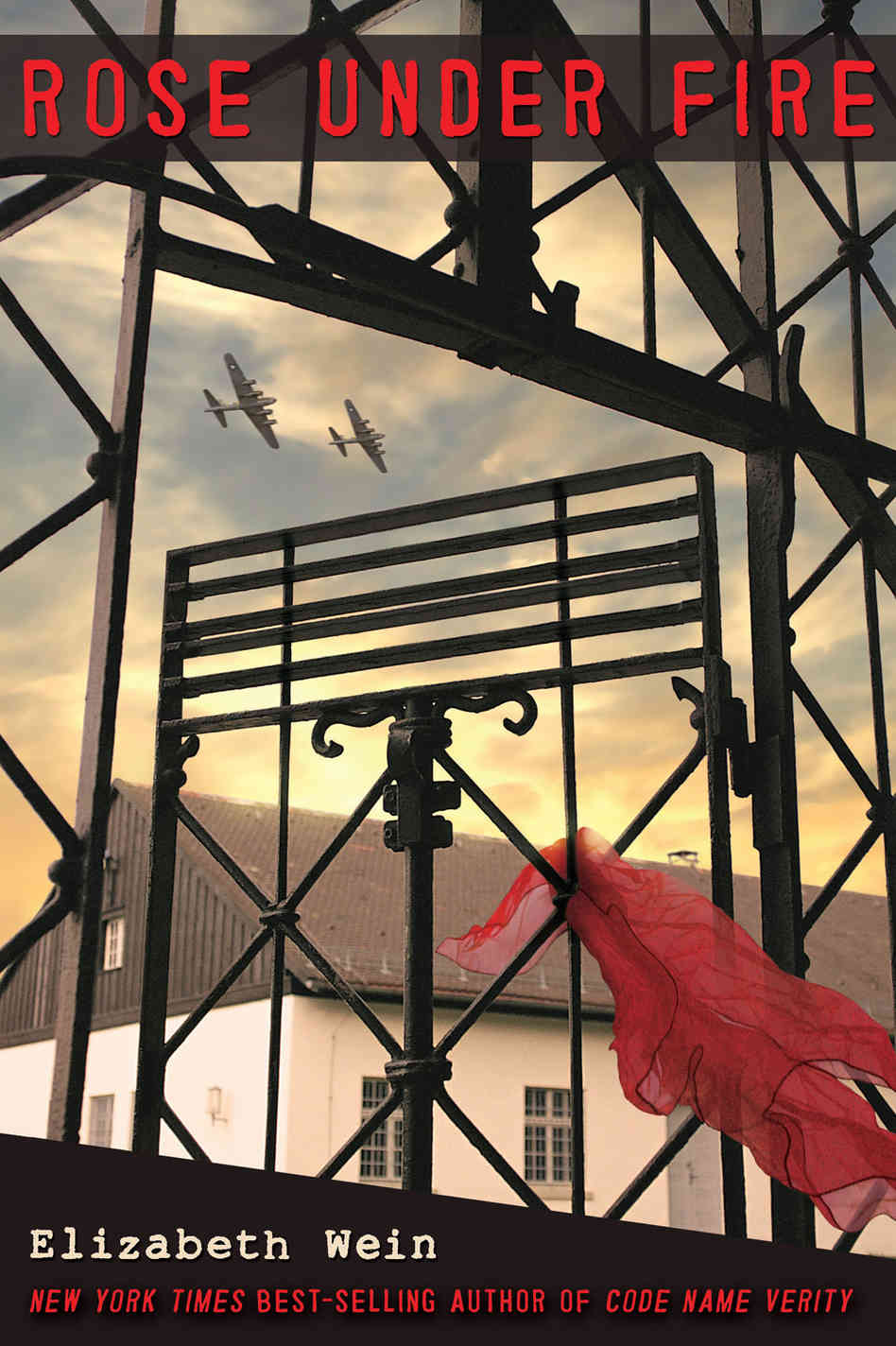08 Oct / Rose Under Fire by Elizabeth Wein

 Confession: If I didn’t have to read Elizabeth Wein’s follow-up to her breath-wringing adventure, Code Name Verity, I would have kept Rose Under Fire under wraps, hidden somewhere amidst my must-read pile, and just be content with basking in the potential promise of a satisfying ‘gawwww’ sometime in the future. The book’s galley sat unopened for a good six months, until the final version appeared on my doorstep as one of the hundreds of titles submitted this year for a book award for which I’m on the judging committee. Suddenly, I was racing to finish – and really, once you start, you won’t be able to stop anyway – in order to make the deadline for the next batch of near-monthly nominations. As bereft as I am to have to wait (and wait and wait) for Wein’s next, I can at least admit that of the non-picture book-submissions, Rose is the best of the best – I think I’m allowed to share my humble opinion.
Confession: If I didn’t have to read Elizabeth Wein’s follow-up to her breath-wringing adventure, Code Name Verity, I would have kept Rose Under Fire under wraps, hidden somewhere amidst my must-read pile, and just be content with basking in the potential promise of a satisfying ‘gawwww’ sometime in the future. The book’s galley sat unopened for a good six months, until the final version appeared on my doorstep as one of the hundreds of titles submitted this year for a book award for which I’m on the judging committee. Suddenly, I was racing to finish – and really, once you start, you won’t be able to stop anyway – in order to make the deadline for the next batch of near-monthly nominations. As bereft as I am to have to wait (and wait and wait) for Wein’s next, I can at least admit that of the non-picture book-submissions, Rose is the best of the best – I think I’m allowed to share my humble opinion.
As with Verity, Fire returns readers to World War II, introducing a new group of women pilots (airborne girl power!). As a much-appreciated bonus, Fire also continues Maddie and Jamie’s love story, as well as Anna Engel’s complicated wartime choices (you must read Verity to know what all that means). That said, with her name (and what a name, indeed! Wein has a penchant for multi-layered nomenclature) claiming the title, this is inarguably Rose Moyer Justice’s story. An American by birth, Rose is fulfilling her wartime duty across the Pond by helping the Allied Forces ferry fighter planes between Britain and France.
When an aerial delivery goes awry, Rose is captured by the Nazis and eventually sent to Ravensbrück, an all-women Nazi concentration camp in northern Germany. Faced with heinous inhumanity, her survival depends on believing in the very best individuals have to offer one another – amidst the pestilence and filth, the starvation and cruelty, the horror and suffering, Rose finds empathy, love, and salvation with a small group of women who become her family.
Even more than Verity, this is not a book for younger readers. We’re reading about Nazis, the Holocaust, concentration camps, genocide and annihilation – to say that terrifying things happen would be sheer understatement. But here’s where Wein triumphs: she has an uncanny ability to deftly blur what might seem to be rigid lines of right and wrong, and miraculously create the tiniest hints of humanity in even some of the worst perpetrators of hate.
“My book is fiction,” she writes in her “Afterword,” “but it is based on the real memories of other people. In the end, like Rose, I am doing what I can to carry out the last instruction of the true witnesses – those who went to their death crying out: Tell the world.” Read, learn … and, because inhumanity still prevails in too many places, we must continue to tell and tell and tell …
Readers: Young Adult, Adult
Published: 2013
